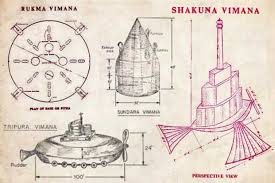Indian Astronomy: From Ancient to Modern Times.
India has a rich history of astronomy, dating back to the Vedic period. Ancient Indian astronomers made significant contributions to the field of astronomy, including the development of sophisticated astronomical instruments, the discovery of planetary motion, and the calculation of eclipses. Over the centuries, Indian astronomy has undergone many transformations, but it remains an important field of study today.
Ancient Indian Astronomy
The earliest records of astronomy in India come from the Vedas, the oldest sacred texts of Hinduism, which were composed between 1500 BCE and 500 BCE. These texts contain references to astronomical phenomena, such as the solstices and equinoxes, and describe the movement of the sun and stars across the sky. The Vedas also contain hymns that praise the sun and the moon as gods.
The next major period of Indian astronomy began with the Siddhantas, a series of astronomical texts written in Sanskrit between the 3rd and 6th centuries CE. These texts describe the movement of the sun, moon, and planets, and introduce the concept of the zodiac. They also describe the use of astronomical instruments, such as the gnomon and the astrolabe, to measure the position of celestial objects.
One of the most famous ancient Indian astronomers was Aryabhata, who lived in the 5th century CE. Aryabhata's major work, the Aryabhatiya, contains important contributions to the field of astronomy, including the first known calculation of the value of pi and the explanation of the rotation of the earth on its axis. He also proposed a heliocentric model of the solar system, in which the planets revolve around the sun.
Medieval Indian Astronomy
During the medieval period, Indian astronomy continued to develop, with astronomers making significant advances in the study of planetary motion. One of the most notable astronomers of this period was Bhaskara II, who lived in the 12th century CE. Bhaskara II's major work, the Siddhanta Shiromani, contains important contributions to the study of planetary motion, including the calculation of the positions of the planets and the explanation of the retrograde motion of Mars and Mercury.
Another important astronomer of this period was Nilakantha Somayaji, who lived in the 16th century CE. Nilakantha's major work, the Tantrasamgraha, contains a detailed description of the movement of the planets and the calculation of eclipses. He also proposed a new model of the solar system, in which the planets revolve around the sun in elliptical orbits.
Modern Indian Astronomy
In the modern era, Indian astronomy has continued to flourish, with astronomers making significant contributions to the study of cosmology, astrophysics, and space exploration. One of the most important institutions in modern Indian astronomy is the Indian Space Research Organisation (ISRO), which was established in 1969.
The ISRO has launched numerous satellites into space, including the Chandrayaan-1, which discovered water on the moon, and the Mars Orbiter Mission, which made India the first country to successfully reach Mars on its first attempt. The ISRO has also launched the AstroSat, India's first multi-wavelength space observatory, which is designed to study the universe in different wavelengths of light.
Conclusion
Indian astronomy has a rich and diverse history, spanning thousands of years. Ancient Indian astronomers made significant contributions to the field of astronomy, including the development of sophisticated astronomical instruments, the discovery of planetary motion, and the calculation of eclipses. Over the centuries, Indian astronomy has undergone many transformations, but it remains an important field of study today, with modern Indian astronomers making important contributions to the study of cosmology, astrophysics, and space exploration.






0 Comments:
Post a Comment
Subscribe to Post Comments [Atom]
<< Home